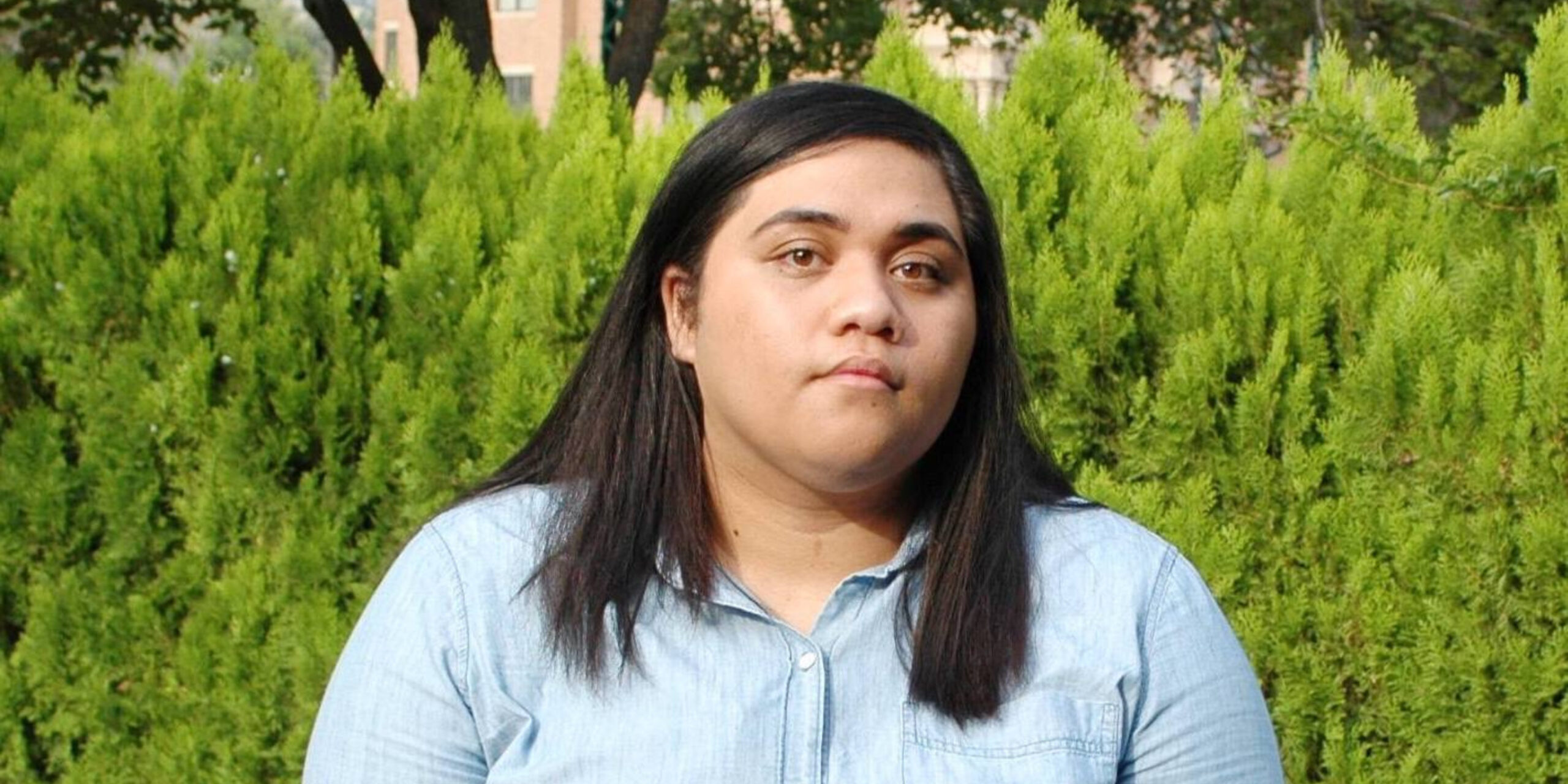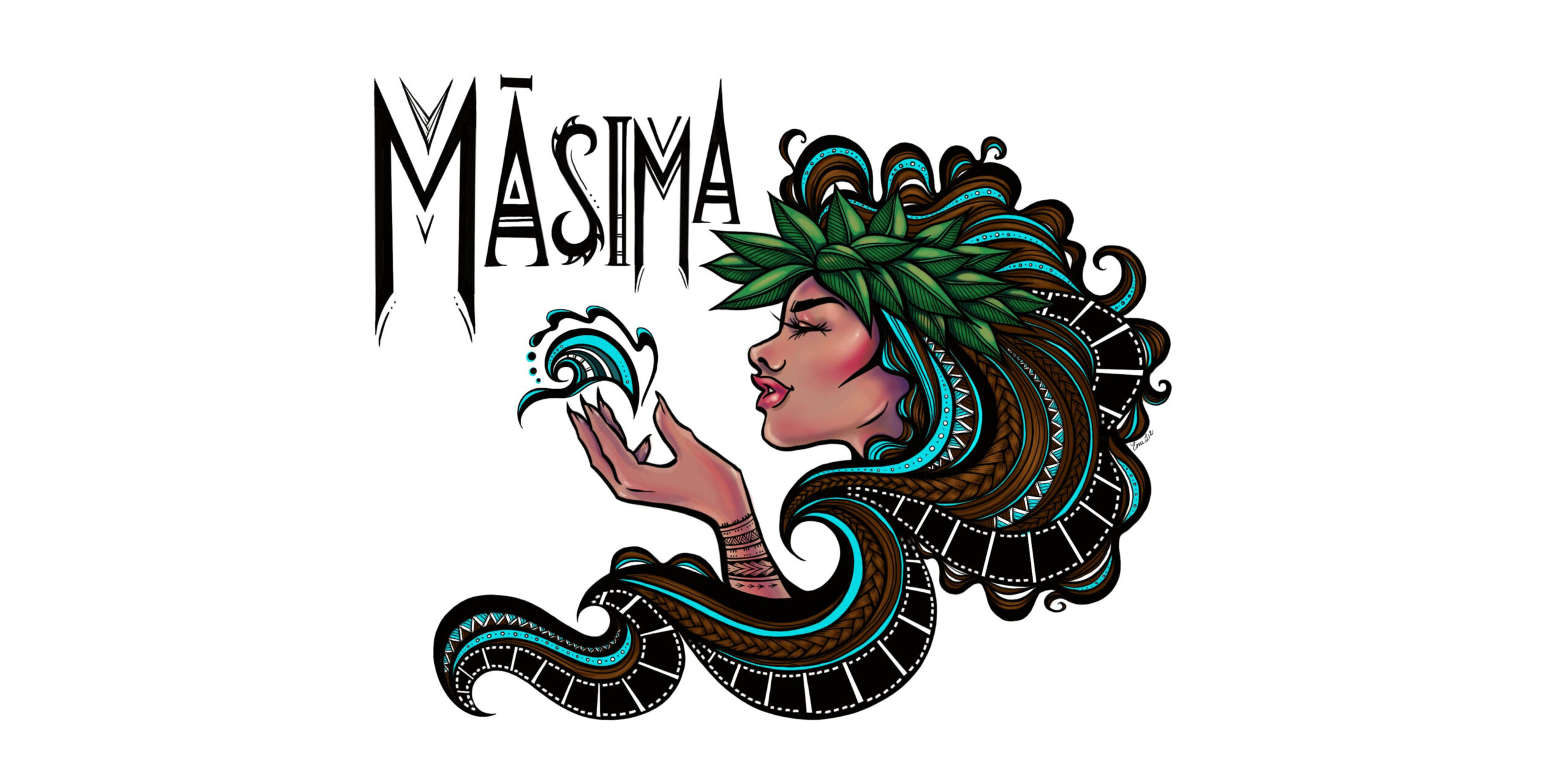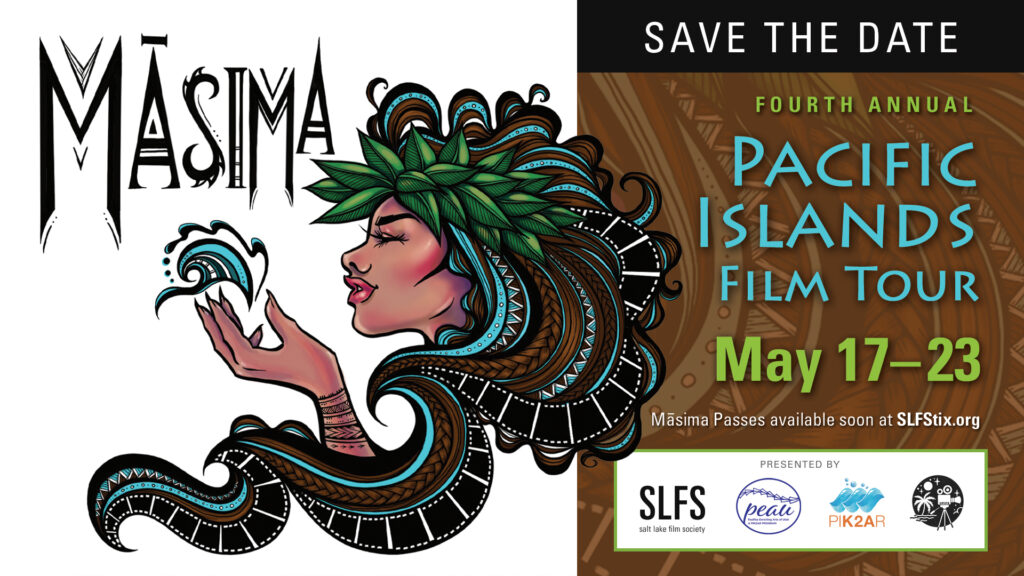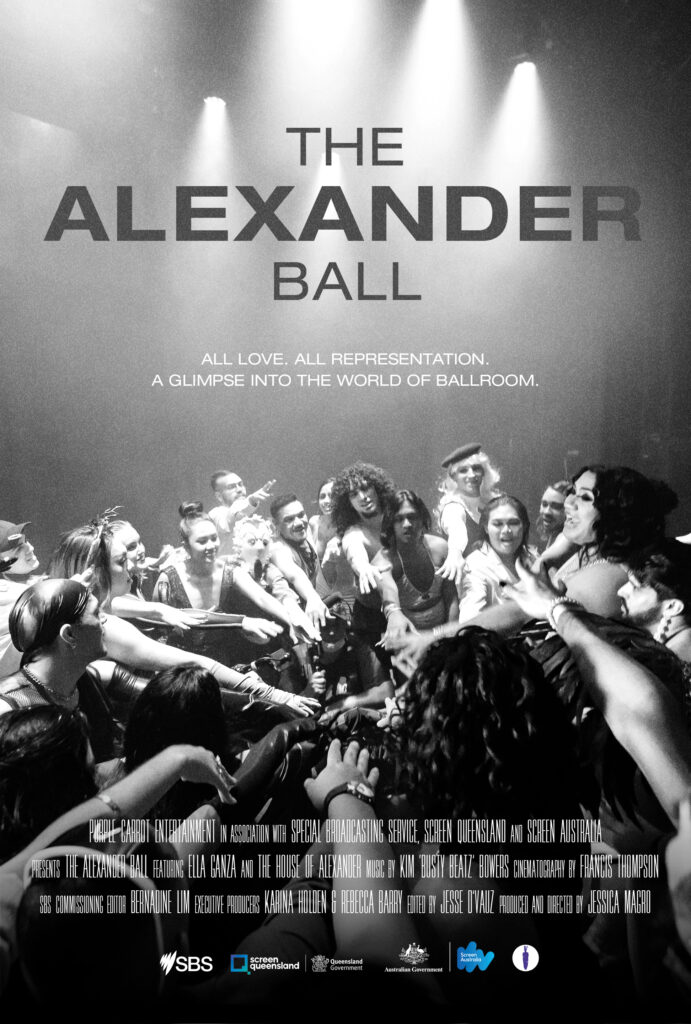Lauren To’omalatai is a Sāmoan screenwriter, director, and film programmer from West Valley City, Utah. She served as Director of the Utah Pacific Island Film Series for four years where she organized free community screenings showcasing films by and about Pacific Islanders throughout Salt Lake County. In 2021 she co-established the Māsima Film Tour with the Salt Lake Film Society to amplify this work and bring it to a wider audience. She is a proud alumni of imagineNATIVE’s Screenwriting: Features Intensive (2021) and Visual Communications “Armed With a Camera” Fellowship (2022-2023) under which she wrote and directed her debut short film “Snack”. You can find her on Instagram, and her website.
“Growing up in West Valley City, I was always surrounded by other Sāmoans and Pacific Islanders in my community. My parents spoke Sāmoan in the home, we ate Sāmoan food, attended a Sāmoan church, and danced in Polynesian groups. I was never the only Pacific Islander in any given place. I could always identify other Pacific Islanders by the way they looked, spoke, or my favorite, that signature boisterous laughter that seemed to follow us around, especially when we gathered together. I consider myself lucky there’s been a constant tether between myself and my heritage.
During my junior year of high school, I became obsessed with film after watching Quentin Tarantino’s Inglourious Basterds. It was the spark that led me to watch other films, explore film history, and try my hand at screenwriting. This budding interest was supported by a theater in downtown Salt Lake City that showed independent and foreign cinema: the Broadway. I’d always loved to write but there was something specific about screenwriting that spoke to me.
This curiosity led me to pursue a Film Production degree after graduation. I didn’t complete the program, leaving school to get a full-time job to help support my household. I was disappointed I couldn’t finish my studies because during this time I’d become increasingly aware that although I didn’t feel like an outsider in my own community, the world of film and television had yet to catch up to the wealth of stories that Pacific Islanders had— a realization that fueled my desire to continue writing scripts, even if I wasn’t in a position to return to school.
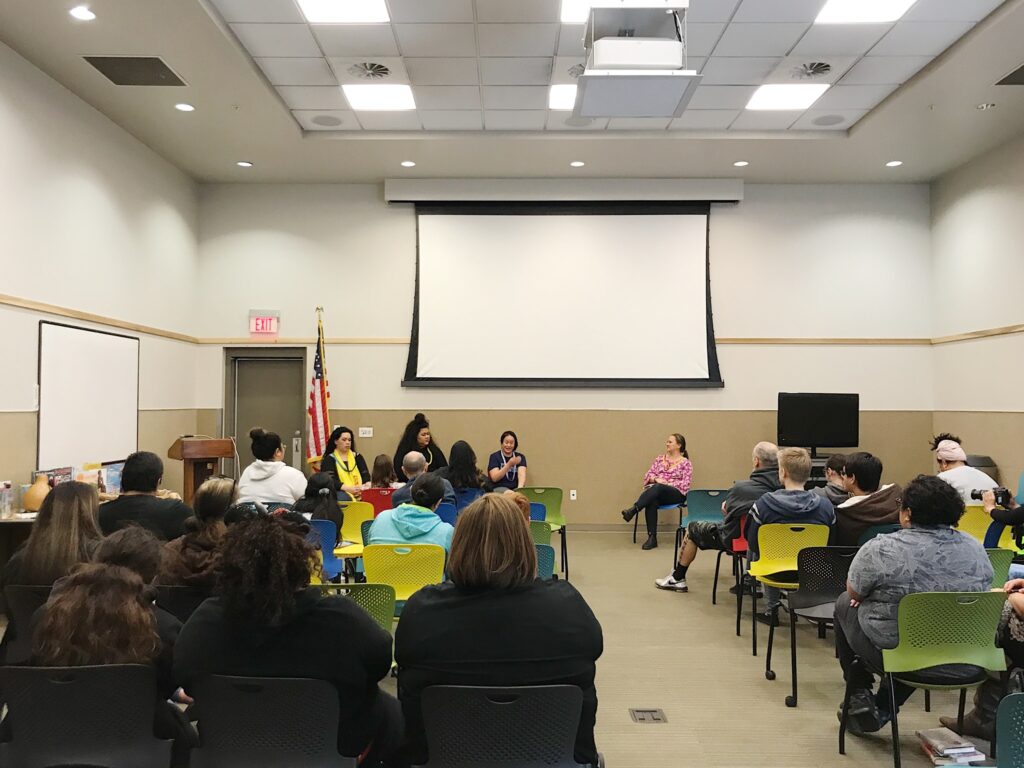
A few weeks later, in March 2016, an opportunity presented itself in the form of a free film screening of a Sāmoan film. Maybe I wouldn’t be able to learn the ins and outs of filmmaking in a classroom but I could still attend this screening and hopefully find other Pacific Islanders who were as passionate about film as I was. The Utah Pacific Island Film Series, a program of Pacific Island Knowledge 2 Action Resources (PIK2AR), had an afternoon showing of My Fa’a Sāmoa directed by Ursula Ann Siataga.
This short depicted a Sāmoan family living in the Bay Area. It was the first time a piece of media directly reflected my own experiences as a first-generation Sāmoan living in the diaspora. Although set in an entirely different state, it was a powerful moment to see the same ways Sāmoan culture was made malleable and molded around the way other young Sāmoans and their families in the U.S. were living.
At the screening I met my mentor and friend Susi Feltch-Malohifo’ou, Executive Director of PIK2AR and for the next few years volunteered at screenings and attended Pasifika inclusive Sundance events. In 2019 I became Director until February 2020 when Covid-19 halted all in-person programming. For the next year we tried our best to facilitate online screenings and discussions, but of course, the energy was different and it was this new challenge to rally folks to watch films online at a time when the whole country was growing weary of watching films at home.
During this period, I reconnected with screenwriting and started submitting to screenwriting fellowships, something I’d never done before. To date, I’ve been privileged to participate in back-to-back fellowships that have strengthened my skills as a screenwriter and filmmaker and given me the gift of connecting with other indigenous and Pasifika filmmakers.
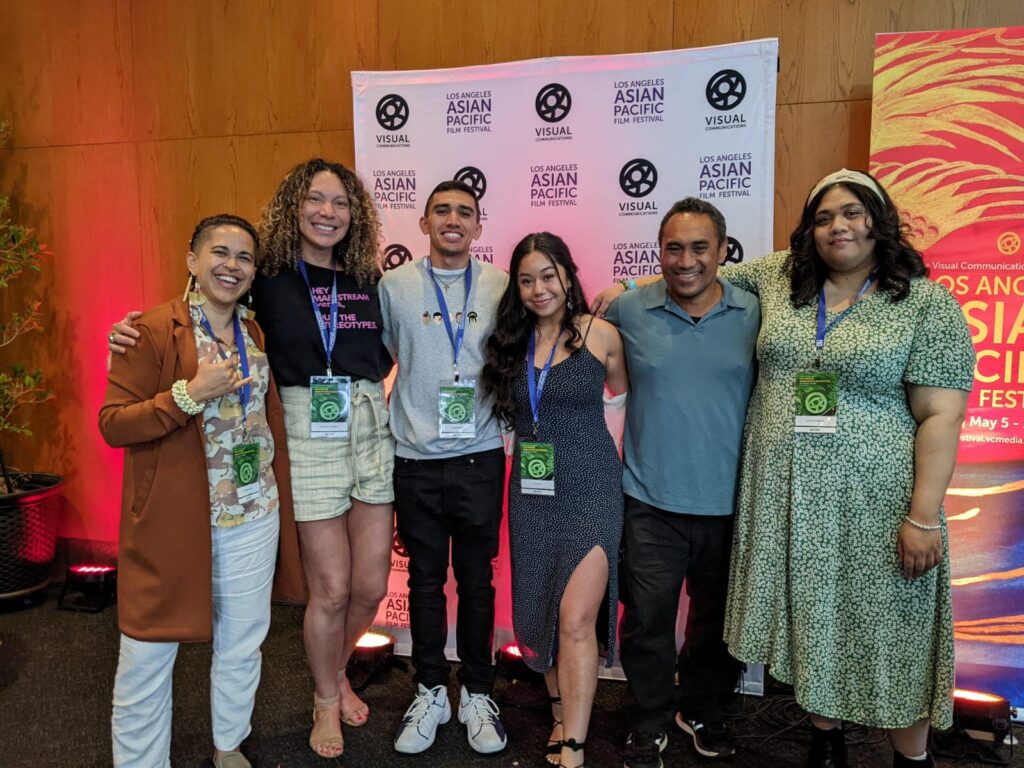
L.A. Asian Pacific Film Festival: (L-to-R) M. Kaleipumehana Cabral, Veialu Aila-Unsworth, Peter Filimaua, Alexis Si’i, Misa Tupou, and Lauren To’omalatai
This past year has been an incredible experience for me under Visual Communications “Armed With a Camera” Fellowship where I was given financial support and mentorship to direct my first short film “Snack”. This cohort was the first in AWC’s 20 year history to be entirely Pacific Islander which serves as a reminder that often in AAPI spaces or initiatives, the PI part of that acronym is minimized or forgotten completely.
Through this fellowship, some intercommunity healing has taken place and I’m hopeful we will continue to make strides in ensuring that when AAPI is used, it actually and actively includes Pacific Islanders in a meaningful way. Snack makes its world premiere at this year’s Los Angeles Asian Pacific Film Festival and comes full circle to screen at this year’s Māsima on closing night.
In 2021 I was a participant in the imagineNATIVE Screenwriting Intensive where I spent the following months writing my first feature film. This would also be the inaugural year of Māsima that saw the incredible staff from the Salt Lake Film Society help us orchestrate a virtual tour complete with panel discussions and partnering with local Pacific Islander owned businesses.
I chose the name Māsima, which means “salt” in a few Pasifika dialects, referencing Salt Lake City where it was created and the salt of the ocean that connects our Pacific Islands and stories. In 2022 Māsima’s program was a larger hybrid experience of both in-person and online screenings and thanks to the generosity of Bill Imada and his team at IW Group we took an abbreviated version of Māsima to Los Angeles.
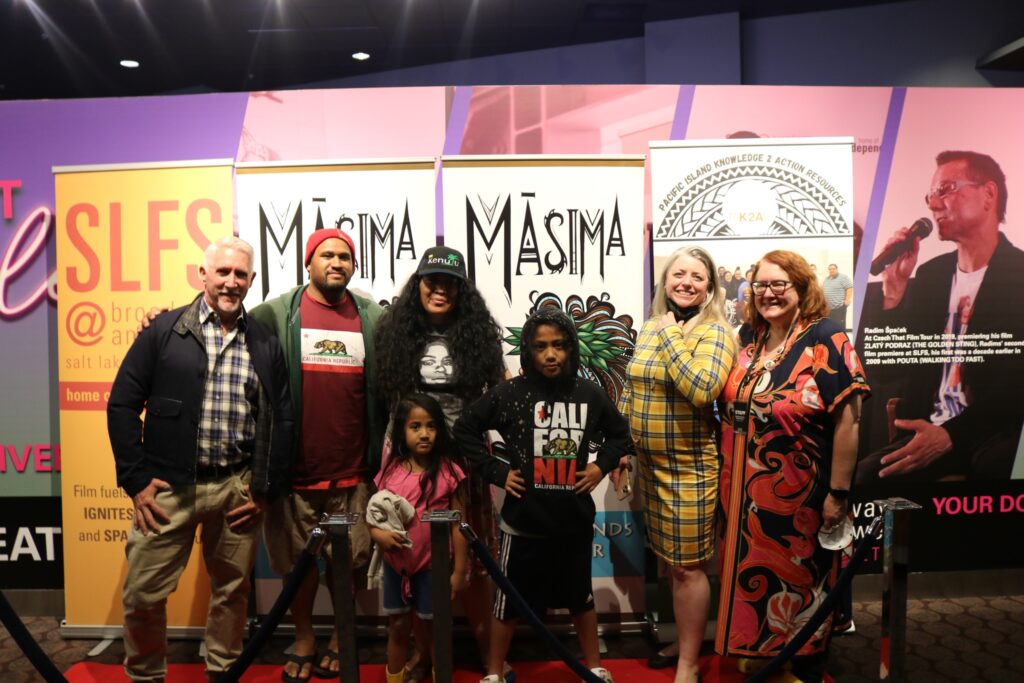
Filmmaking is a collaborative effort. This goes for not only what happens on-set and on the production side of things, but also what happens when your film leaves you and is shared with others. There is a lot of trust and respect when a film is shared with an audience that we would all do well to remember and I’m extremely appreciative of each and every filmmaker who has allowed us to showcase their work in all iterations of Māsima. Salt Lake County has a large population of Pacific Islanders and it’s a dream fulfilled to share Pasifika stories with the local community for a third year at Broadway.
There is an expression in Sāmoan, Teu le Vā, which means “nurture the space” and that space is essentially the relationships that we all have in our lives. This relationship could be one that you have with another person, multiple people, or the environment around you. This is a personal favorite saying of mine that I strive to live by because the relationships that we have with our family, friends, coworkers, ourselves, and the world around us, are crucial to the ways we see, experience, create, and share art. To be an artist is to be in community and we must prioritize these relationships so trust and creativity can take root and flourish.
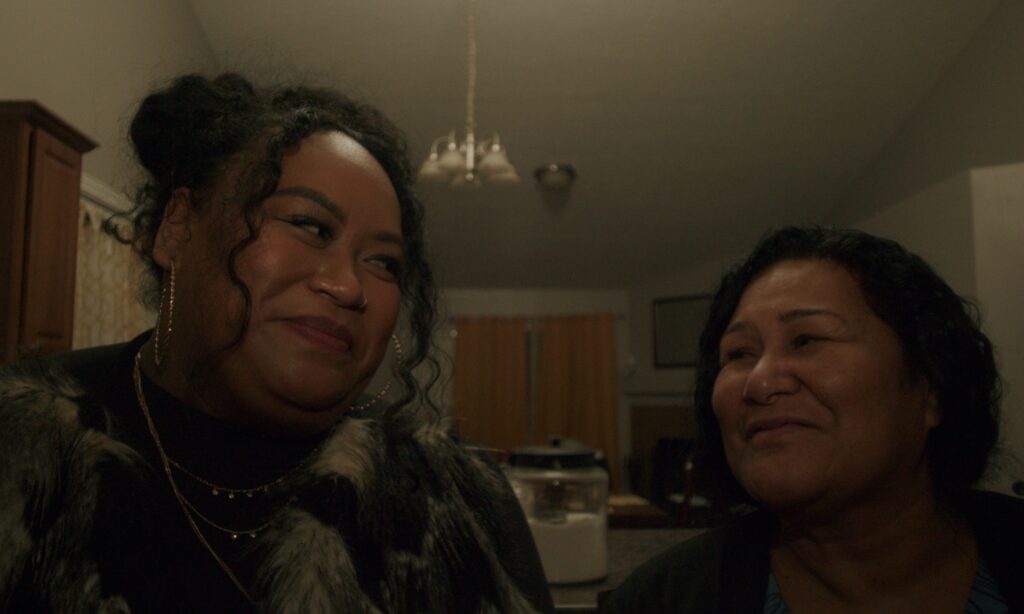
Tuitamaalelagi Hafoka
The relationship that I’ve had the honor of cultivating with the incredible team at the Salt Lake Film Society is one that I value greatly and I’m grateful to be working closely with an organization that doesn’t just purport to care about diverse stories but, has made an active effort to bring those stories and storytellers to the forefront. I hope Pasifika and non-Pasifika audiences alike will attend one of our screenings down at the Broadway to see the variety of humanity and creativity that the Pacific Islander community has.
If you can’t make it to the Broadway in May during Māsima’s run or any of the available screenings online, here’s a curated list of Pasifika films that I believe have made waves of positive change and self-expression in the ever-expanding ocean that is Pasifika cinema.”
Here is a curated list from Lauren of Pacific Island films, available on SLFS Letterboxd and below.
Loimata: The Sweetest Tears (2022) directed by Anna Marbrook
Waru (2017) directed by Ainsley Gardiner, Casey Kaa, Renae Maihi, Awanui Simich-Pene
For My Father’s Kingdom (2021) directed by Vea Mafileʻo
Tanna (2015) directed by Martin Butler and Bentley Dean
Whale Rider (2002) directed by Niki Caro
The Dark Horse (2014) directed by James Napier Robertson
The Dead Lands (2014) directed by Toa Fraser
Cousins (2021) directed by Briar Grace-Smith and Ainsley Gardiner
Three Wise Cousins (2016) directed by Stallone Vaiaoga-Ioasa
Boy (2010) directed by Taika Waititi
Out of State (2017) directed by Ciara Lacy
Patu! (1983) directed by Merata Mita
Hunt for the Wilderpeople (2016) directed by Taika Waititi
The Orator (2011) directed by Tusi Tamasese
One Thousand Ropes (2016) directed by Tusi Tamasese
Once Were Warriors (1994) directed by Lee Tamahori
Next Goal Wins (2014) directed by Mike Brett, Steve Jamison
Waikiki (2020) directed by Christopher Kahunahana
James & Isey (2021) directed by Florian Habicht
Leitis in Waiting (2018) directed by Joe Wilson, Hinaleimoana Wong-Kalu, Dean Hamer
Every Day in Kaimuki (2022) directed by Alika Tengan
The Land Has Eyes (2004) directed by Vilsoni Hereniko
No. 2 (2007) directed by Toa Fraser
The Legend of Baron To’a (2020) directed by Kiel McNaughton
Merata: How Mum Decolonised the Screen (2018) directed by Hepi Mita
Kumu Hina (2014) directed by Joe Wilson and Dean Hamer
Island Soldier (2017) directed by Nathan FItch
Ever the Land (2015) directed by Sarah Grohnert
Mele Murals (2015) directed by Tadashi Nakamura and Keoni Lee
